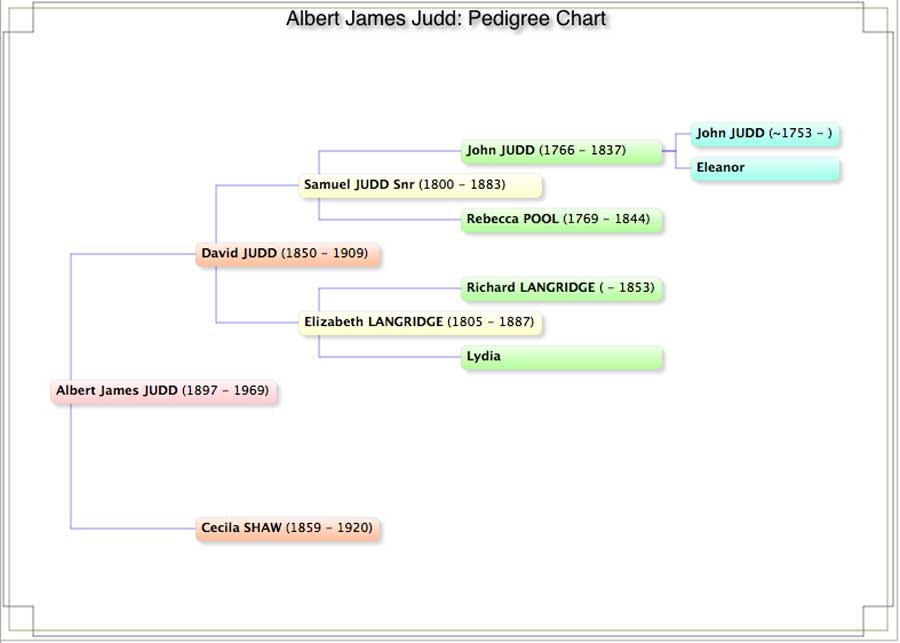A Case of Watermelons
On April 6, 1907, the following article appeared in the Brighton Southern Cross about a young cousin of mine: 10 year old Albert James Judd.
MELON PATCH WATER MELONS £2/12/6 EACH AT HEATHERTON
 Market Gardeners in the vicinity of the metropolis state that they have given up the attempt to grow the luscious water melon, owing to the depredations of boys and others who can never pass their fields without sampling them. If outsiders leave them alone their neighbours’ lads raid them and, as —- at East Brighton remarked, ‘If we grow them we are continually in hot water with our neighbours’ kids and the game is not worth the candle’. It is also well known that the melon family do best on new rough ground and these two reasons lead to their cultivation in land in the more distant areas.
Market Gardeners in the vicinity of the metropolis state that they have given up the attempt to grow the luscious water melon, owing to the depredations of boys and others who can never pass their fields without sampling them. If outsiders leave them alone their neighbours’ lads raid them and, as —- at East Brighton remarked, ‘If we grow them we are continually in hot water with our neighbours’ kids and the game is not worth the candle’. It is also well known that the melon family do best on new rough ground and these two reasons lead to their cultivation in land in the more distant areas.
At the Cheltenham Court on Wednesday a market gardener named Alexander Longmuir, residing at Clarinda road, Heatherton, charged Reuben Buckley, John Potts, Albert Judd and H. Gouldthorpe with unlawfully stealing a water melon on Sunday, March 23, valued at 6d. Defendants all pleaded not guilty. Informant stated he was a market gardener and had three-quarters of an acre of his ground planted with watermelons. He had a fine crop, but so many of them had been stolen that on Sunday week he, his two sons, and Brownfield tried to trap some of the thieves. He saw the accused in his ground, one of them pulled a melon, carried it about 20 yards, and then bolted when he (witness) whistled. He caught Potts, his son, the others. They admitted taking the melon and he could not understand them pleading not guilty now. They gave fictitious names, ‘Whiskers,’ etc. and, as they would not give their right names, he sent for the police. A. J. Judd (to witness) — I gave you my name. I was not in the melon patch at all. I was 30 yards away’. Witness — ‘I saw you in the patch. It’s not the value of the melon, but I want to stop the thieving’.
Robert Longmuir, son of witness and a strong, strapping young fellow said he was a gardener. He saw accused in the patch about 3pm on Sunday week. They all ran when his father whistled and he caught Gouldthorpe. He told him he was wanted and took him to his father. He helped to catch Judd. A brother of last witness said they strolled to the patch in the afternoon, ate a melon and then saw accused hiding in the scrub. He saw three in the patch. W. Brownfield, labourer, who wanted his expenses and was told by the P.M. that he was too late as he had been sworn, said he lived in Boundary road, Heatherton.
He was with the Longmuirs, but had not the pleasure of catching any of accused. ‘In fact’ said witness, ‘I didn’t want to be there’. After the police were sent for they wanted to square it. He meant by ‘they’ three other fellows who were camping in the vicinity, including ”Sailor” Judd. Constable Guinane said that at 6pm he was sent for and went to the camp and saw accused, with the exception of Judd. The three pleaded to be let off, and said, ‘You let the others off, why not us?’ The camp was a quarter of a mile from the paddock.
For the defence, A. J. Judd stated that he was not in the paddock at all. He went for a walk with the other three and they said they would have a watermelon. Mr Cresswell – ‘Were you to share it?’ Witness – ‘They never got it’. John Potts was called as a witness, but settled the case by stating that the three of them agreed to get a watermelon. Witness went in first. Judd did not go in, but he made no objection when it was suggested that they get a melon. The Chairman (Mr. Cresswell), P.M. said Longmuir Snr. stated he saw Judd in the paddock and the fact that he was with other accused and made no protest when they suggested the theft, showed in the eyes of the the law they were acting in concert and he was equally guilty.
They would be fined 10/- each. Brownfield said he had to put a man on to take his place at 5/- a day. Each defendant was ordered to pay 3/- costs and 1 1/2d.each, the value of the melon stolen; in default, 24 hours. The informant’s suggestion that defendants put a donation in the poor-box, was not permitted.
http://nla.gov.au/nla.news-article164418891
The three ‘other fellows’ camping in the vicinity included “Sailor” Judd. I wonder who this character was? I’d guess it could have been one of Albert’s uncles – Uncle Samuel and Uncle William Judd were both evangelist ministers – Samuel was in New Zealand when the watermelon affair happened and, although William had returned to Cheltenham from ministering in South Australia, he was hardly the type to be hanging around a watermelon patch! Uncle Robert was a storekeeper in Warragul, Victoria while Uncle Richard was a respected Cheltenham electoral official. That leaves only the mysterious Uncle James who I know nothing much about, except that he too was a market gardener …not a sailor!





